University Essay: Transformational Leadership and Project Management
VerifiedAdded on 2022/10/01
|5
|848
|449
Essay
AI Summary
This essay provides an analysis of transformational leadership, a leadership style where leaders work with their teams to identify necessary changes, create a vision, and execute the change with committed team members. It begins by defining transformational leadership and its origins, referencing the work of James MacGregor Burns. The essay argues that transformational leadership is effectively utilized by project managers, highlighting its role in resolving critical issues and ensuring project success. It then explores the core components of transformational leadership, including idealized influence, inspirational motivation, individual consideration, and intellectual stimulation, as well as the importance of finding opportunities in change. The essay concludes that transformational leadership is a popular and effective approach to leadership, emphasizing its ability to improve working skills and foster enjoyment among followers. The essay references academic sources such as Firestone (2014) and Mortensen et al. (2014) to support its arguments.
1 out of 5
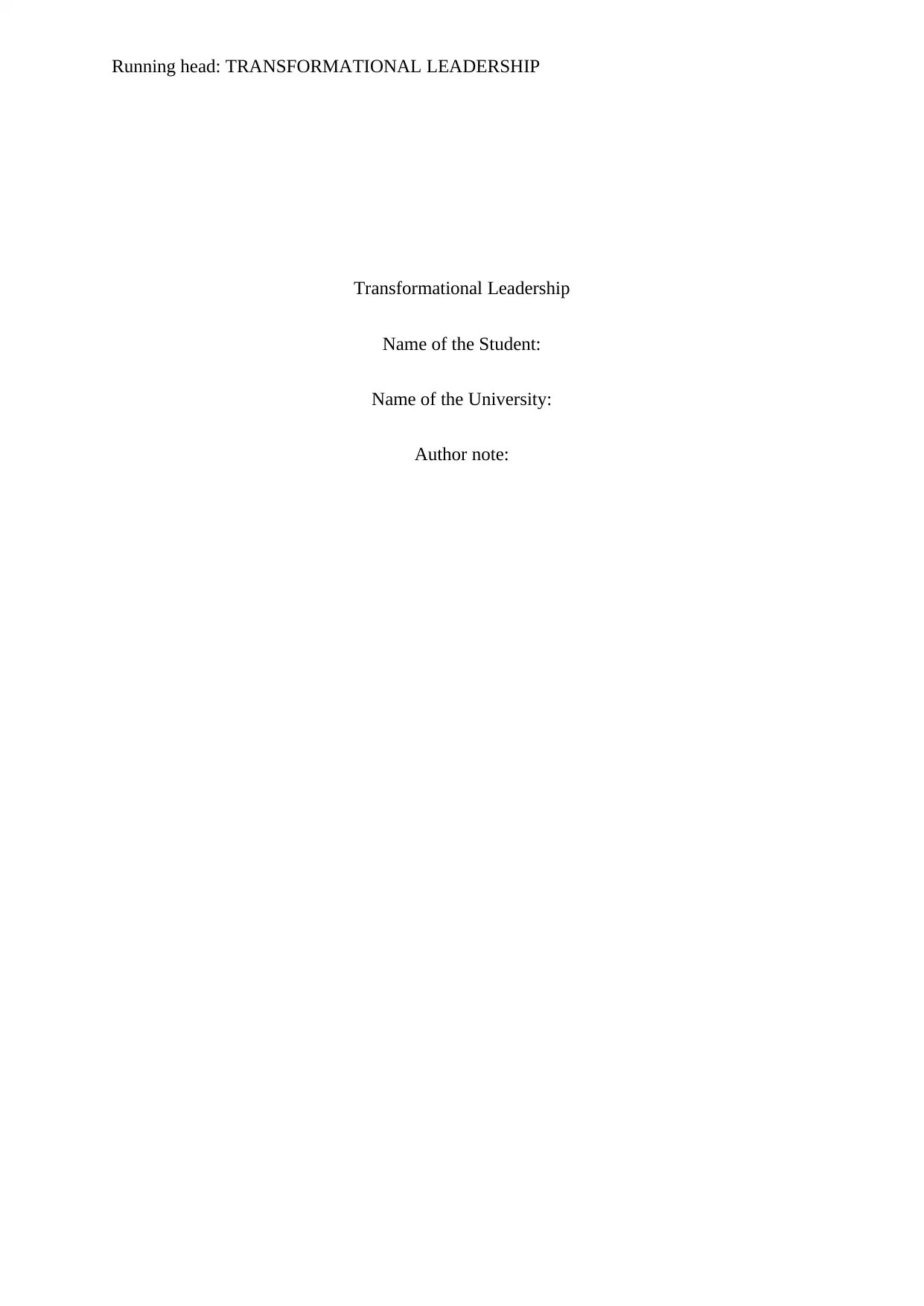
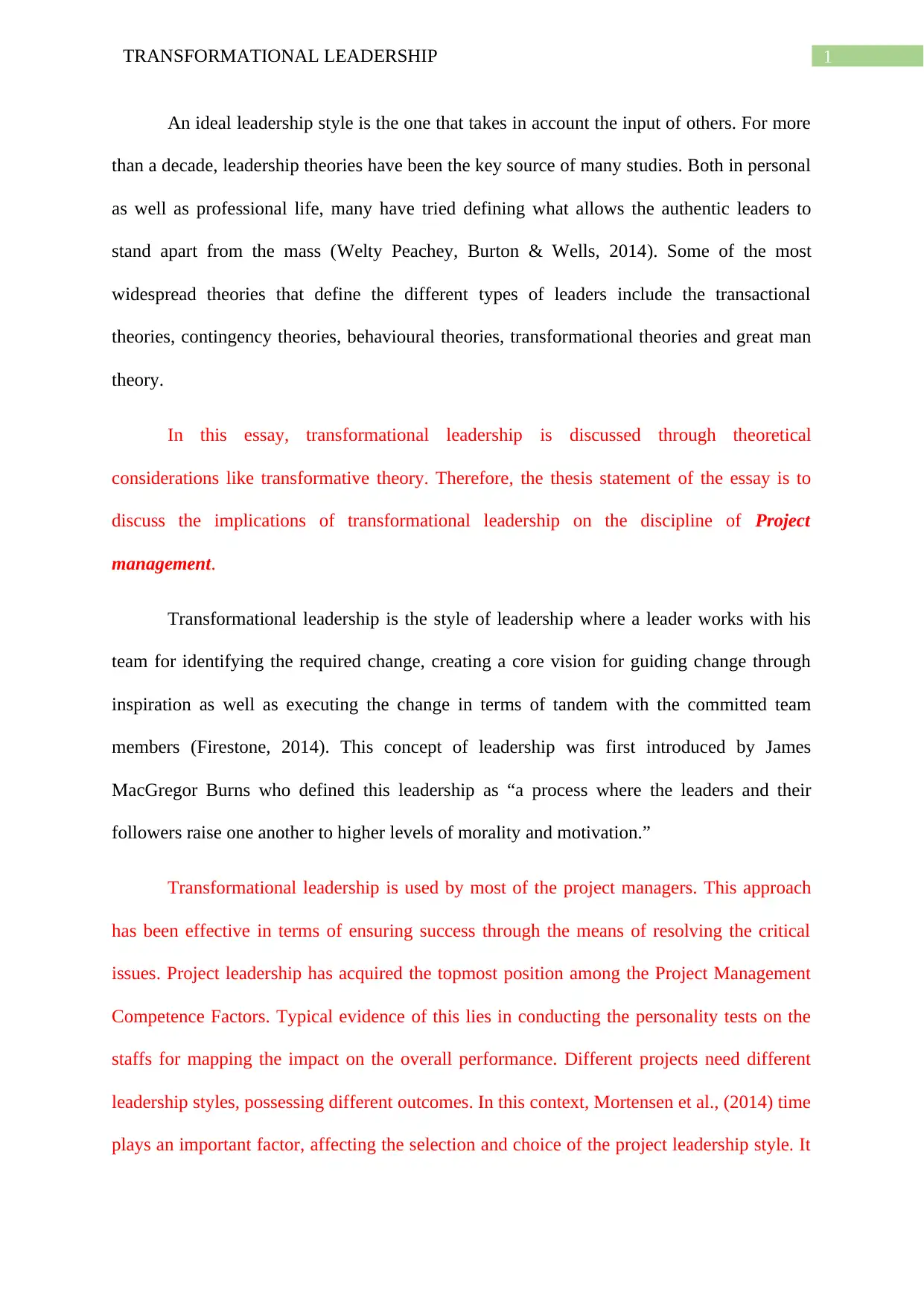
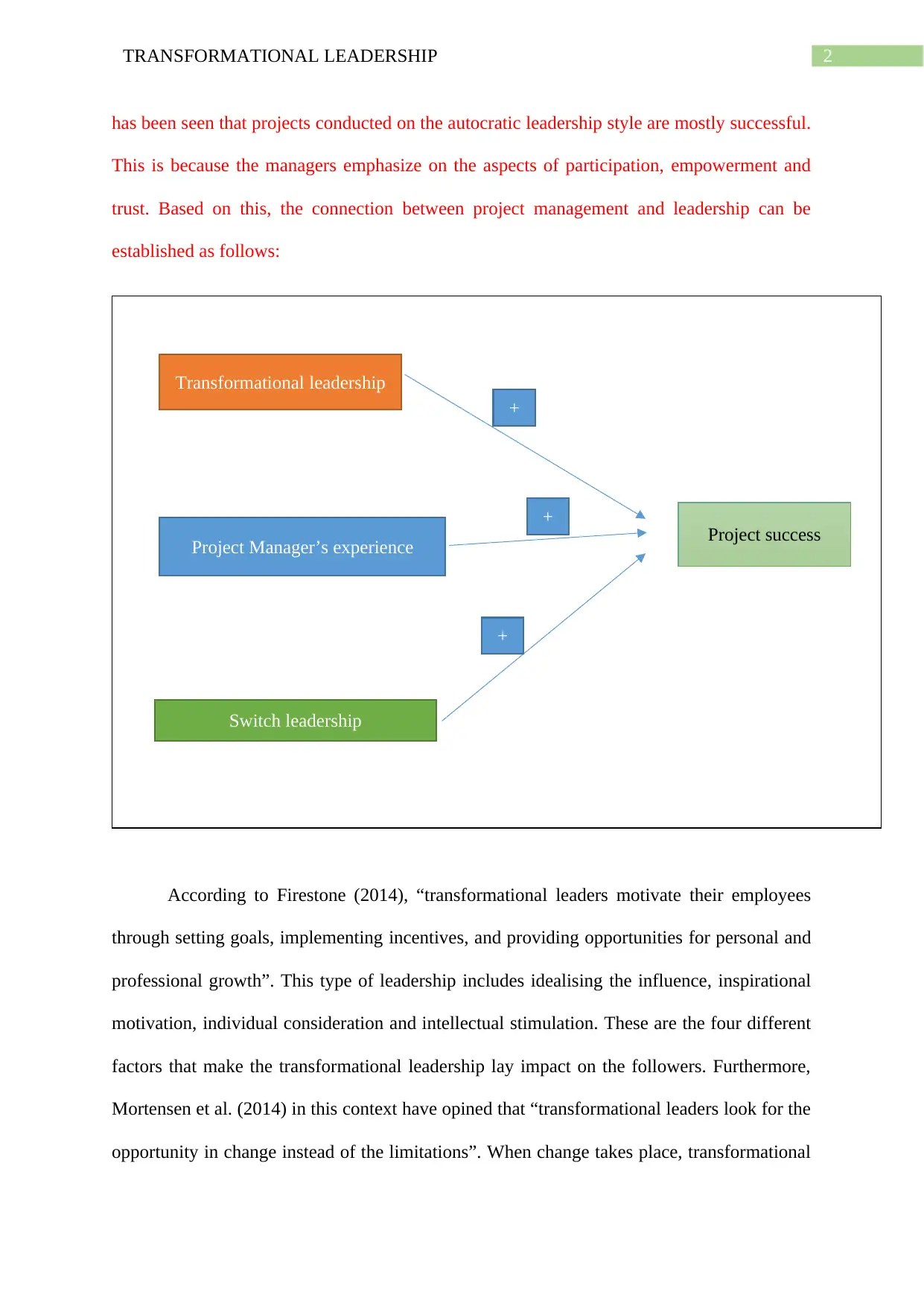

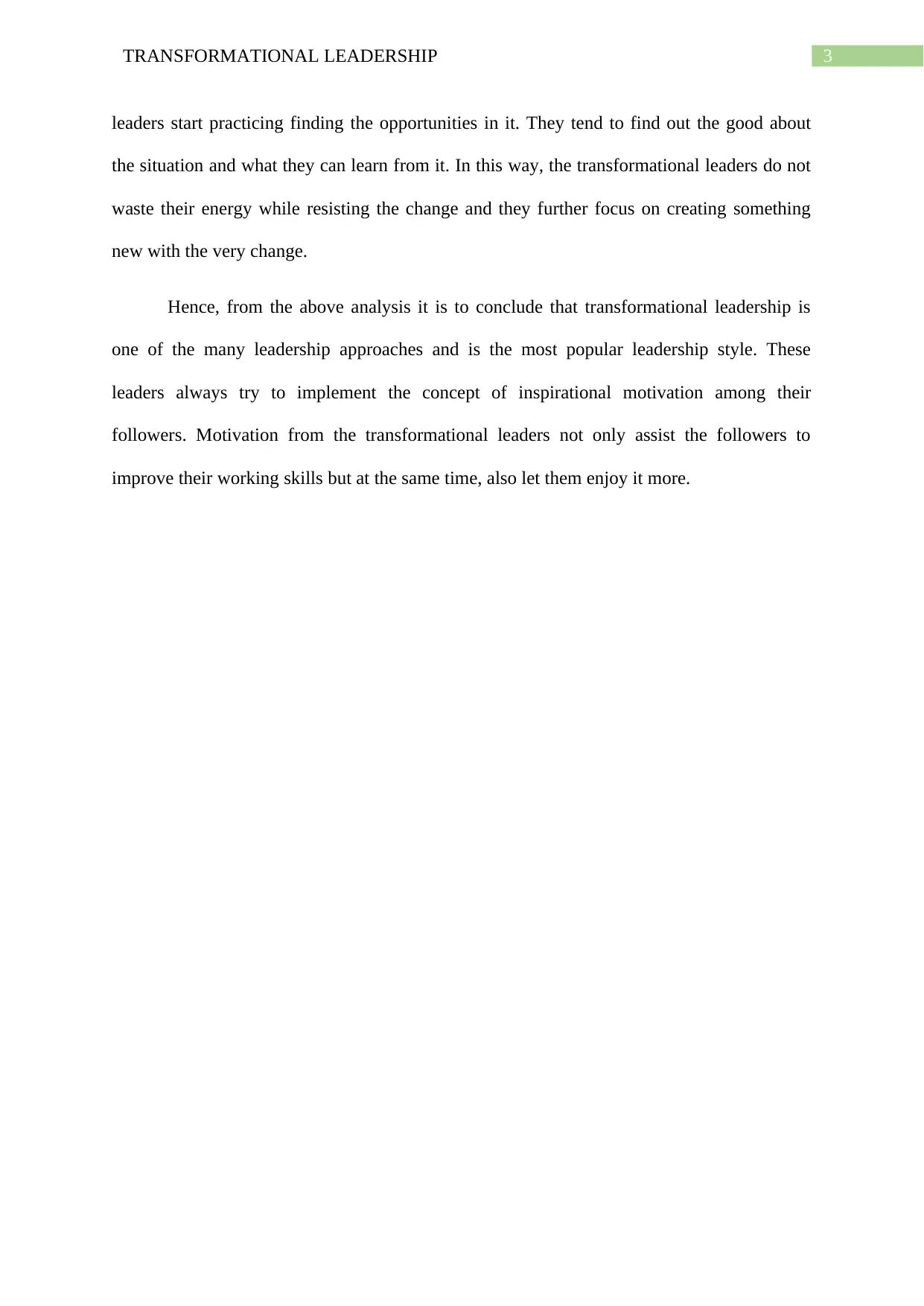
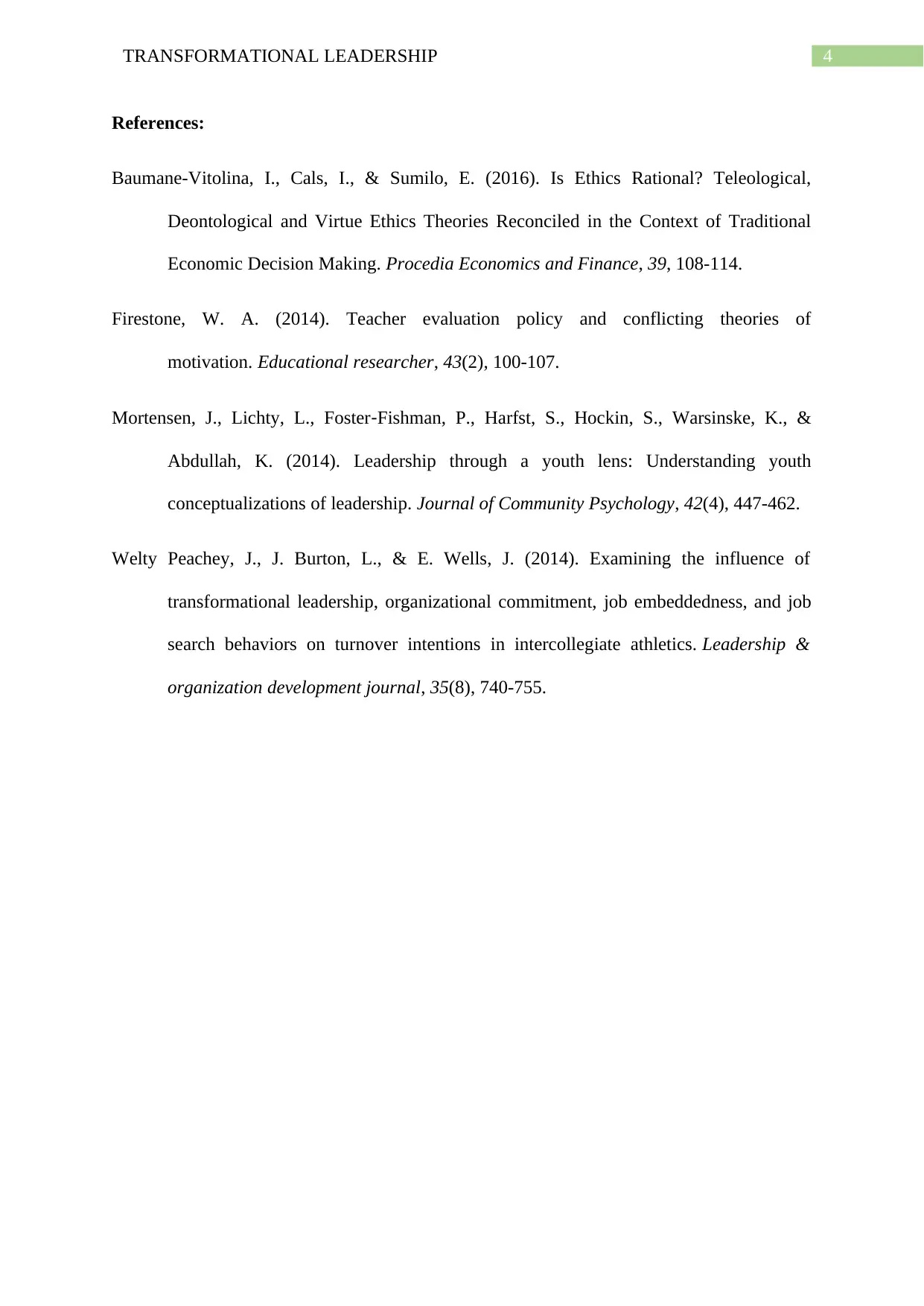






![[object Object]](/_next/static/media/star-bottom.7253800d.svg)